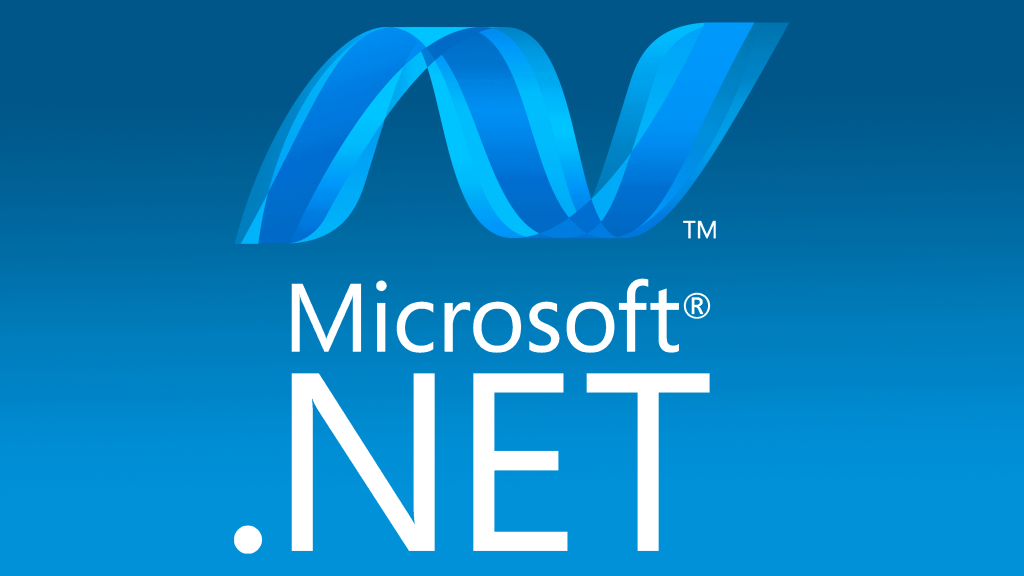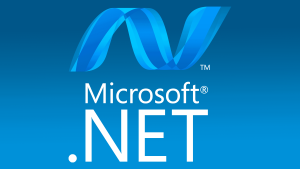Top 9 .NET Trends to Dominate in 2025


What trends will dominate in the next decade? Will they be AI, VR, .NET trends or Blockchain development trends?
We live in a time where technological advancements are happening at an unprecedented rate. The pace of change has never been faster. In the last fifteen years alone, we’ve seen the rise of smartphones, social media platforms, cloud computing, virtual reality, artificial intelligence, and much more.
As these technologies continue to evolve, new ones will emerge. And more and more web development companies that offer software powered by these technologies appeared.
In this article, we would like to be more down-to-earth and speak about the technologies right in front of us. And the topic is .NET technology and .NET trends. It features multiple usage options: web enterprise and eCommerce platforms, the Internet of Things development, high-quality graphic android games, and more! This technology is in the top 10 most popular and loved technologies, according to the stack overflow survey 2022.
.NET Technology and Its Features
The.NET Framework is an application platform developed by Microsoft Corporation (MS) that allows developers to create applications that run across multiple operating systems, including Windows, Mac OS X, Linux, iOS, Android, etc. The.NET Framework includes several components such as ASP.NET, ADO.NET, WPF, WCF, MVC, Entity Framework, LINQ, etc. The .Net Framework provides a set of tools and libraries designed to simplify application programming. These include common language runtime (CLR), Common Language Infrastructure (CLI), type safety, managed code, garbage collection, and security features.
The .Net technology has been widely adopted in enterprise software development. It is also used in many other areas, including web services, mobile devices, desktop applications, games, and embedded systems. More than 300 million lines of source code are written using this technology worldwide. Furthermore, there are more than 7 million .NET developers worldwide.
Characteristics of .NET
Modern and Fast

The .NET framework is a modern and fast platform for building applications because it includes several technical features and characteristics that make it efficient and easy to use. Key features include:
- Just-in-time (JIT) compilation allows code to be compiled at runtime, which can improve performance by reducing the overhead of interpreting code.
- Garbage collection automatically manages memory allocation and deallocation, which can help prevent memory leaks and other issues.
- .NET Core: .NET Core is a subset of .NET Framework, which is open-source, cross-platform, and can be used to build applications for Windows, Linux, and macOS.
In general, .NET Core, a subset of .NET Framework, has been designed to be lightweight, modular, and high-performance. It allows building software quicker and makes the software development lifecycle shorter. It’s optimized for server-side scenarios and can be used to build high-performance, scalable and responsive applications.
Enhanced Security
.NET 6 has enhanced security features such as Write Exclusive Execution (W^X) and Control Flow Technology (CET). CET technology is available with the latest versions of Intel processors and AMD. It has the ability to protect your device from control-flow attacks. Although .NET 6 supports CET on Windows x64 applications; however, you should enable this feature explicitly.
In the same way, the W^X function protects your attack path by ensuring that memory pages are not writable. However, the W^X feature is available on Apple systems by default, but it is not available on Windows systems. Moreover, W^X feature still requires investing in application security testing.
Friendly
It works with a variety of frameworks and libraries. With ASP.NET Core, it is possible to build a sizable online application incorporating Angular and JavaScript.
An Open Source
.NET has two parts, the .NET Framework, which is a proprietary software framework developed by Microsoft that runs primarily on Microsoft Windows, and .NET Core. .NET Core is open-source and can be used to build open-source applications.
.NET Core is an open-source, cross-platform and can be used to build applications for Windows, Linux, and macOS. Microsoft and the .NET community on GitHub maintain it.
.NET Development: How it Looks Like
Software development utilizing the Microsoft.Net Framework is known as “.Net Development.” The Microsoft Windows (PC) and Microsoft Windows CE platforms support the usage of a collection of software components known as the.NET Framework to create and execute applications. The .NET Framework offers a common programming interface for creating software for servers, desktops, mobile devices, portable devices, and other platforms.
The Framework’s ability to provide an API (application programming interface) to access common services in other applications, like databases or web servers, is a crucial component. Before giving those traditional systems access to the data contained in their database, a normal application can use the API to interact with traditional systems like Access or SQL Server.
Growing Demand For .NET
It is difficult to predict which technological trend will grow more in the future. But it is obvious that .NET will be here as it is the essential technology revolution and will become more popular in the coming years.
Nonetheless, when it comes to the wages of .NET developer, the industry has found 2.1% rise in average salary by 2020 and 2.3% in 2021. Yet, presently, an increase of 3.3% in .NET salaries has also been seen in 2022.
A .NET developer can pull down roughly $105,000 per year. There is an increasing trend of working offsite for .NET developers. This means you can earn a handsome package from the comfort of your home. According to UpWork, by 2025 41.8% of American developers will prefer to work in remote settings.

The need for .Net developers will rise as more businesses adopt this technology for their operations and goods due to ongoing .NET trends. Over time, the .Net has grown significantly and is now a widely used programming language among programmers and software developers. Additionally, numerous businesses and governments from throughout the world use it. As more companies utilize this technology in their goods and services, the number of web developers will likewise rise.
.NET is a popular, ever-growing development platform that lets developers create cloud-based, mobile, and desktop applications for Windows, iOS, or Android. You’ll find .NET libraries for just about every programming language and platform.
Now we would like to go to top 9.NET trends. It’s not our first article about trends, so check this article out:
- Top 5 Tech Trends in Supply Chain and Logistics Shaping the Future
- Top 8 Trends in IoT Development for 2025 [Updated]
- Trends in E-commerce Software Development You Should Consider
Top 9 .NET Trends to Dominate in 2025
But what will it be like in 2025? What will .NET trends dominate at that time? Here are some predictions:
.NET Trend #1: Web Development with Blazor
An advanced component of the.NET web development framework called Blazor enables.NET development companies to produce web apps in C#. In order to use HTML and CSS, it offers reusable web components. Blazor allows you to develop server-side and client-side code in the same language.
Furthermore, by running client events directly on the server, Blazor may be linked to SignalR to run real-time apps and provide users with a unified experience. This is of the most useful .NET trends that will help developers overcome the most common challenges and learn best coding practices.
Why it Matters?
Blazor allows the creation of rich interactive UIs using C#. The most popular frameworks, like Angular, React, and Vue uses JavaScript for building interactive interfaces. Using Blazor means leaving them behind, which is a tough transition for developers.
.NET Trend #2: The Synergy of .NET & IoT

The Internet of Things (IoT) is a broad term that refers to any device connected to the internet. IoT has become more popular over time, and it’s no wonder why: It’s a powerful way for businesses to collect data about their customers and respond in real-time when necessary. As a result, IoT is becoming an important part of many companies’ strategies for growth.
The .NET framework is one of the most popular platforms for developing applications for the IoT because it can handle multiple languages like C# or VBScript easily while still allowing developers access to all .NET APIs (Application Programming Interfaces). This is one of the latest .NET trends in 2025.
This makes it easier than ever before for developers who want access across multiple platforms, such as Windows 10 IoT Core plus Windows Server 2016 Core Essentials edition, which includes Visual Studio Code as well as Microsoft Azure Mobile Services SDKs, which provide support for mobile apps development using iOS & Android devices in addition.
Additionally, you may build, test, distribute, and manage applications by directly accessing auxiliary components using the.NET Nano and Meadow IoT frameworks.
Why it Matters?
IoT applications that present the current state of the hardware and software of each smart device through a single interface can be made with .NET. All popular boards, including Raspberry Pi, Arduino, Pine A64, and others, are compatible with its internal architecture without a hitch.
This framework is a new .NET trend designed to develop applications powered by machine learning, using the latest advances in deep learning and artificial intelligence technology from Microsoft Research.
.NET Trend #3: ML.NET

For medium-sized and large organizations, automating operations and processing multidimensional data are fast becoming necessities. And for these reasons, utilizing machine learning skills is a great option. ML.NET can be used to build unique algorithms, parts, and modules for embedding detection, identification, and self-optimization characteristics.
ML.NET is a cross-platform, open-source machine learning framework for .NET developers and a unique .NET trend. Making it easy to create ML models, use them to make predictions, and integrate them into your apps.
Why it Matters?
ML.NET helps and supports multiple data types (XML files) and formats (JSON files). Moreover, a variety of prebuilt algorithms in the core library can be used without writing your own code
.NET Trend #4: .NET MAUI
Native applications can be made using the.NET Multi-platform App UI. The main programming languages for developing apps that can run on iOS, Windows, Android, and macOS via a shareable source code are C# and XAML.
.NET MAUI is a new framework for building AI applications. It is built on top of .NET Core and is compatible with .NET Framework.
Why it Matters?
With MAUI, you may exchange both single and multiple files between devices, protect data using the key-value combination technique, use text-to-speech modules, and perform real-time network, bandwidth, and latency analysis.
.NET Trend #5: High Tech System of Security

Software developers can safeguard the availability, confidentiality, and integrity of data using .NET. Benefits include an integrated HTTPS module, the ability to configure role-based security, and the prevention of scripting attacks by inspecting each packet and user request.
2025 is going to be a great year for .Net Development. With the emergence of new technologies like IoT, ML.NET, and many more, this year will be very exciting for developers using .NET. High Tech security systems are in high demand, especially in the IT industry. .NET is considered the most secure platform for developing apps.
Why it Matters?
Almost all developers have risks of cuberattack during the process of software development. .NET framework allows these deveopers to improve the security system for boosted performance of theri software.
.NET Trend #6: Core Advancement
Microsoft is currently releasing new .NET Core updates. Its capabilities can be used to design REST APIs, full-stack applications, and client-server architectures with bi-directional data transmission. You may also create autonomous Docker containers using a microservices framework to operate your application.
The number of searches for Microsoft .NET framework Core-related topics has increased over time, according to Google Trends, which shows more people are interested in these topics than those linked to classic ASP.NET.
Why it Matters?
Several aspects such as versaility, security, and execution as the reasons to the renownce of the core ASP.NET development. Further, it helps and supports an extensive range of programming languages such C#, Python, and much more.
.NET Trend #7: .NET 6 Framework

All users must upgrade to.NET 6 because Microsoft no longer supports.NET version 5.0. It is an LTS release that ensures hot reload, intelligent code auditing, and diagnostics with the Visual Studio 2022 version, in addition to stable support for up to three years. Additionally, Crossgen2 with.NET 6 can speed up application loading.
A unified platform for browser, cloud, desktop, Internet of Things, and mobile applications is also provided. The underlying infrastructure has also been modified to accommodate the requirements of all app kinds and facilitate code reuse across all of your apps.
Why it Matters?
According to Microsoft’s official announcement on October 11, 2022,.NET 6 is a Long-term Support (LTS) release and will be supported for three years; with its announcement, it has become one of the top .NET trends in 2023. Additionally, it works with a variety of operating systems, including Windows Arm64, Apple Silicon, and macOS.
.NET Trend #8: Xamarin Development
Although Mono is currently available for iOS and Android, its appeal is still restricted to a small group of users because of particular problems with performance, compatibility, and inadequate documentation.
But by providing the most dynamic and effective cross-platform framework for creating Android, iOS, and Windows mobile apps, Xamarin has addressed this void and has become the latest .NET trend.
Why it Matters?
The.NET Core technology created and maintained by Microsoft is required for creating cross-platform applications utilizing the Xamarin framework. Based on .NET Trends data, we can detect that 11% of the worldwide developers search for the Xamarin business for the app development project.
.NET Trend #9: .NET Command-Line Interface (CLI)
.NET Command-Line Interface (CLI) is a command-line tool for working with .NET applications and one of the latest .NET trends. It can be used from the command line or through simple scripting. It supports creating, executing, and debugging C# and VB projects.
The .NET Command-Line Interface (CLI) is a tool for script-based automation of Microsoft tools and technologies. It provides cross-platform support for PowerShell, SQL Server Management Studio (SSMS), Database Management Studio (DBMS), and Integration Services.
Why it Matters?
The .NET Command-Line Interface (CLI) is a user-friendly command-line interface (CLI) for installing and using the .NET Framework. Think of it as your own personal copy of Visual Studio.
The traditional Visual Studio “installing” process has been replaced with an executable file that can be run on any system to install a localized set of commands that allow you to perform the most common development tasks.TitlePostsSelect post typePostSelect taxonomyAllEnterpriseStartupsDevelopmentInsightsSumatoSoftResources
- 15 Market-Defining SaaS Trends for 2023-2025
- 11 Best Use Cases & Upcoming Trends of IoT for Manufacturing
.NET Development with SumatoSoft
SumatoSoft delivers exemplary services in 10+ business domains and works with all types of technologies like big data, blockchain, artificial intelligence, web, mobile, and progressive app development. We also can make a great contribution to any project that requires .NET custom software development. Every project we undertake starts with nuanced business analysis. We have more than 150 successful projects in various industries like eCommerce software, Elearning development, Finance, Real Estate, Logistics software, Travel, and more.
- 60 specialists on board, 10 years on the market.
- We focus on long-term cooperation. 70% of our clients come back to us with another project.
- 70% of our team is senior-level developers and QA engineers who ensure the app complies with domain best practices and our inner quality assurance guidelines. Better quality means happier users.
- We work honestly and openly for fair rates.
- No communication barrier since all specialists speak English well.
- 150 custom software solutions.
- 27 countries we worked with.
- Clients are satisfied with our results. 4.8 rating on Clutch and 5.0 rating on Goodfirms prove it.
We are ready to build your next .NET project. Contact us to get a free quote!
Final Words about .NET trends
As a developer, you know that .NET is the fastest-growing language in the world. And now there’s no better time to be learning it than now! .NET is an open-source framework for building applications and services for Windows, Linux, and macOS platforms.
Microsoft created .NET in 2000 as a successor to their earlier COM (Component Object Model) technology which allowed software components to be developed separately from each other but still work together seamlessly.
Over time it has become one of the most popular development frameworks for enterprise applications because of its high-level support for reuse across multiple languages (C#/.Net Framework), powerful features like LINQ, which makes data querying easier than ever before, and seamless integration with SQL Server databases when using Entity Framework Core Edition libraries or Entity Framework Data Services endpoints respectively.
All this makes developing apps quicker than ever before! The future of .NET looks bright, and we can’t wait to see what it brings.
Let’s start
If you have any questions, email us info@sumatosoft.com




